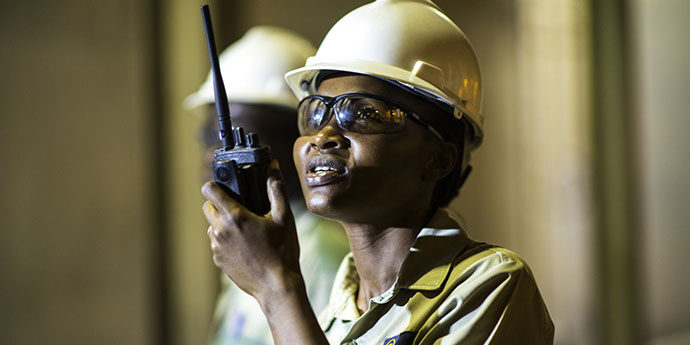The Secretary of State for Mineral Resources, Jânio Correa Victor, reiterated, Wednesday 5th April, in Luanda, the need for greater dedication from women with a view to overcoming the approximately 12 percent of the workforce in the mining industry.
Jânio Correia Victor made these remarks at the opening of the round table under the motto “Women in the Angolan Mining Industry”, organized by Mining Eventos, to awaken a greater interest of women in the geological-mining activity.
He stated that companies in the mining sector should support the rise of women to higher positions, in order to improve the quality of their action in corporate decision-making spheres, defended the Secretary of State for Mineral Resources.
“It is important that companies in the sector implement gender-neutral recruitment processes, that they promote equal training opportunities and that they study the possibility of establishing goals for gender diversity in the Boards of Directors”.
Jânio Correia Victor considers female representation to be insignificant, taking into account that, “according to demographic data from the statistics of the United Nations (UN) for the year 2019, the global population was about 7.7 billion people, of which 3.82 billion are women”.
Women in mining, he noted, occupy roles across the entire spectrum of the value chain, from labor-intensive positions to more technically skilled and managerial positions.
“We consider what, globally and locally, there is still to be done for a greater integration of women in the value chain of the Mining sector”, he said. She further explained that although numbers and statistics provide important information about the role of women in the industry.
The head of the Department for Standardization and Good Practices of the National Agency for Mineral Resources, Tânia Hung da Rocha Pinto da Silva, said, in turn, that the quota of women in mining activity is still below the desired level, which is what is being asked. to international standards.
He also recalled that “Angola has embraced the challenge of the UN’s 2030 agenda, where the fifth pillar establishes gender equality and the aim is to reach a 50/50 gender equality quota in the Mining sector by 2027”.
![]()




